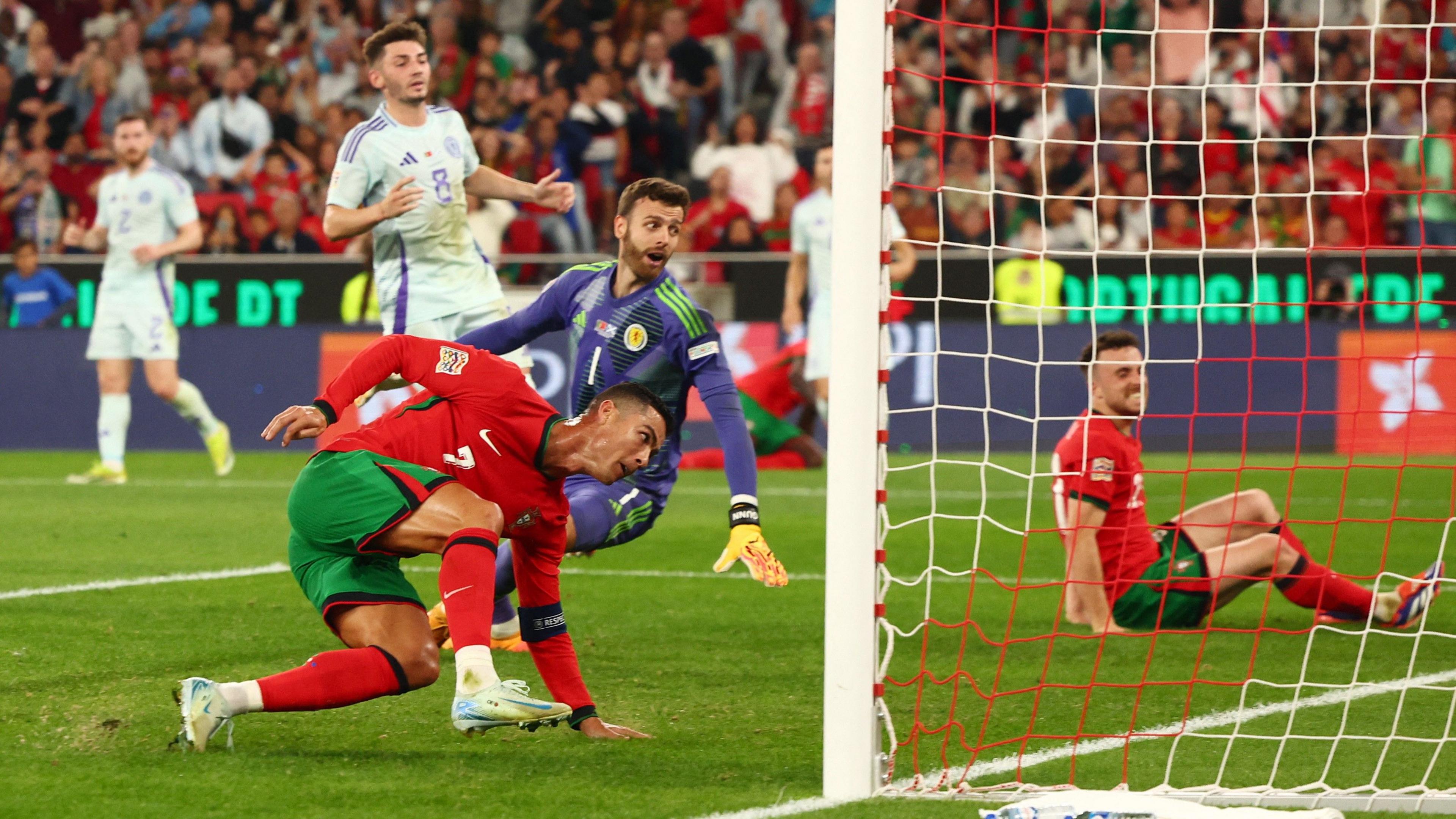
The Nations League play-off clash between Scotland and Greece unfolded as a riveting tactical encounter, showcasing the strategic acumen of both teams. Set against the backdrop of a pulsating atmosphere, Scotland, known for their resilience and compact defensive setups, lined up in a 3-5-2 formation. Their strategy revolved around controlling the midfield and exploiting Greece's defensive frailties. Conversely, Greece, with their rich footballing heritage, deployed a 4-2-3-1 formation, focusing on rapid transitions and utilizing width to stretch the Scottish defense.

The tactical battle commenced with Scotland's captain, a linchpin in their defensive and offensive transitions, orchestrating play from the back. His leadership ensured Scotland maintained a structured approach, with the wing-backs pushing forward to support attacking plays, while the central defenders remained vigilant against Greek counterattacks.
In contrast, Greece's attacking midfielder emerged as a key figure, threading incisive passes and creating numerous goal-scoring opportunities. His vision and creativity were instrumental in unlocking the Scottish defense, as Greece sought to capitalize on the spaces between Scotland's defensive lines.
Formations and Key Players
Scotland's 3-5-2 formation allowed them to dominate the midfield with numerical superiority. The trio in the heart of midfield provided a blend of defensive cover and attacking impetus. The wing-backs played a crucial role, offering width and enabling Scotland to transition swiftly from defense to attack. Notably, the Scottish captain's ability to read the game and initiate attacks was pivotal in Scotland's tactical setup.
Greece's 4-2-3-1 formation, on the other hand, was designed to exploit Scotland's defensive structure. The two holding midfielders shielded the back four, while the attacking trio behind the striker aimed to penetrate Scotland's defense with quick, incisive passes. The Greek winger's pace and dribbling were constant threats on the flanks, often drawing Scottish defenders out of position and creating opportunities for his teammates.
/origin-imgresizer.eurosport.com/2024/09/05/4036803-81873709-640-480.jpg)
Tactical Flexibility and Adaptations
As the match progressed, both managers demonstrated tactical flexibility, tweaking their formations to counter each other's strategies. Scotland's manager adjusted his team's shape by pushing the wing-backs higher up the pitch, aiming to pin Greece's wide players back and limit their attacking threat. This move paid dividends as Scotland began to control more possession and create clear-cut chances.
Greece's coach responded by instructing his team to adopt a more compact defensive stance, absorbing pressure and looking to hit Scotland on the break. The introduction of a fresh forward added a new dimension to Greece's attack, providing an aerial threat and additional physicality in the final third.
Statistical Insights
The statistical analysis of the match revealed Scotland's dominance in terms of possession, with 58% compared to Greece's 42%. Scotland's ability to control the midfield was evident in their passing accuracy, which stood at an impressive 84%. However, Greece's counter-attacking strategy proved effective, as they managed five shots on target compared to Scotland's three.
A crucial moment came in the second half when Scotland's central defender made a last-ditch tackle to deny Greece's forward a clear goal-scoring opportunity, exemplifying Scotland's defensive resilience.
Managerial Strategies
The tactical prowess of both managers was evident throughout the match. Scotland's manager emphasized the importance of maintaining defensive solidity while encouraging his players to exploit Greece's vulnerabilities on the break. His counterpart from Greece focused on quick ball circulation and exploiting the flanks, instructing his players to be patient and wait for the right moment to strike.
The match concluded in a hard-fought draw, a result that reflected the evenly matched contest between two tactically astute sides. The post-match analysis highlighted the importance of strategic adaptability and player discipline in high-stakes games such as this.
In the end, the Nations League play-off served as a testament to the tactical depth and competitive spirit of both Scotland and Greece, leaving fans and pundits alike eagerly anticipating the outcome of the upcoming second leg. As the footballing world turns its attention to the next fixture, the lessons learned from this encounter will undoubtedly influence the strategies employed by both teams in future clashes.